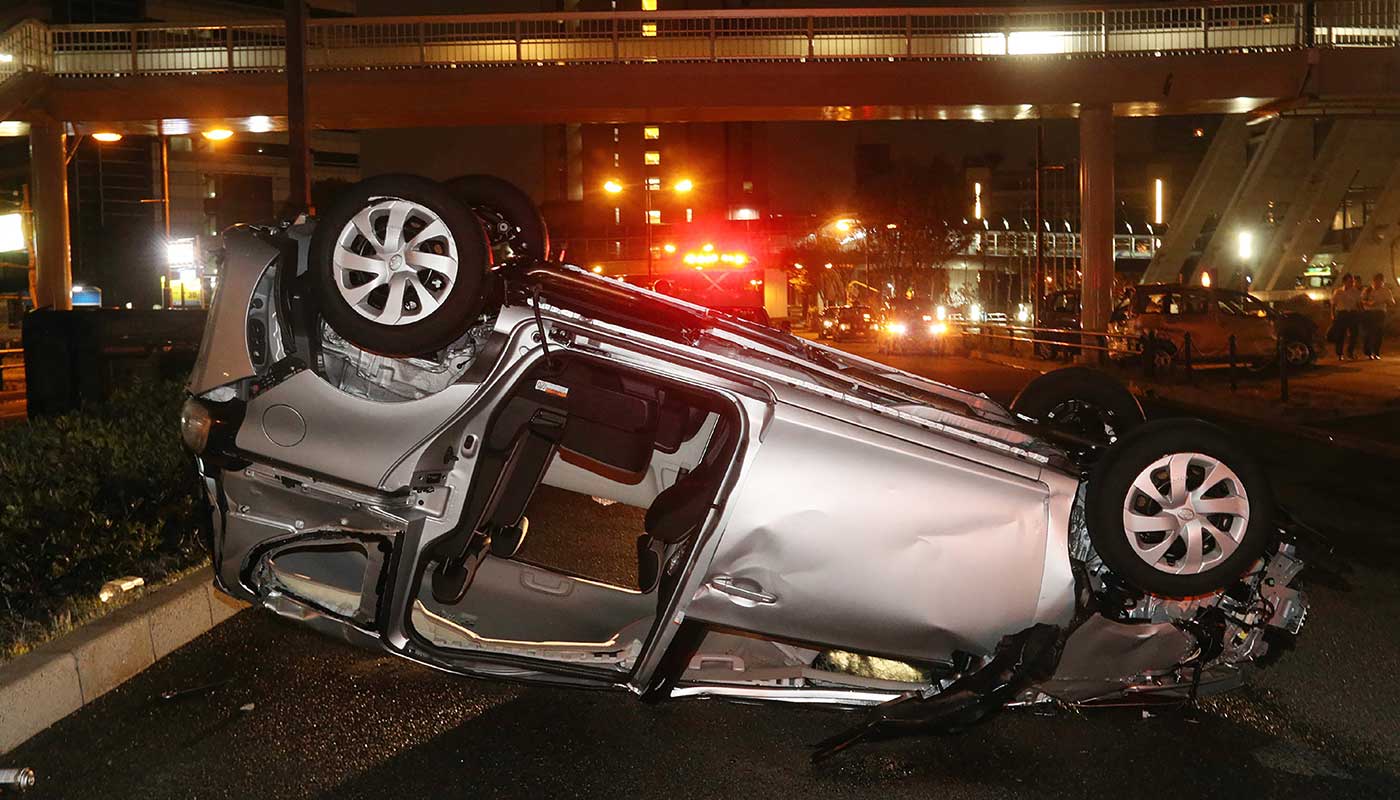Typhoon Jebi: ten killed as cyclone lashes Japan
Tropical storm is the strongest to hit Japanese mainland in 25 years

A free daily email with the biggest news stories of the day – and the best features from TheWeek.com
You are now subscribed
Your newsletter sign-up was successful
At least 10 people have been killed and hundreds more injured, after the strongest typhoon to hit Japan’s mainland in 25 years made landfall.
Typhoon Jebi hit Japan with “very strong” force in the Tokushima prefecture Tuesday afternoon, local time, leaving a trail of destruction across the west of the country, The Japan Times reports.
Evacuation advisories were issued for more than a million people as the typhoon bore down on the mainland, bringing gales of up to 216kph (135mph) and torrential rain around the western port city of Kobe.
The Week
Escape your echo chamber. Get the facts behind the news, plus analysis from multiple perspectives.

Sign up for The Week's Free Newsletters
From our morning news briefing to a weekly Good News Newsletter, get the best of The Week delivered directly to your inbox.
From our morning news briefing to a weekly Good News Newsletter, get the best of The Week delivered directly to your inbox.
Footage on social media shows cars and vans toppled over by the strong winds, with widespread flooding and damage to a number of buildings in the area, including Kansai International Airport.
CNN reports that the winds whipped up the sea, “yanking an 89-metre-long tanker, the Houunmaru, from its anchorage and ramming it into the bridge connecting Kansai airport with the mainland”.
The incident trapped more than 3,000 people at the airport, forcing authorities to arrange emergency extractions using high-speed boats.
One man was reportedly killed when the warehouse he was in collapsed, and several people were injured when a section of glass ceiling at Kyoto station fell on them during the storm.
A free daily email with the biggest news stories of the day – and the best features from TheWeek.com
The BBC says the winds are slowing down as the storm continues to track north towards the Sea of Japan, and “people are being urged to stay alert for landslides and floods”.
Typhoon Jebi is the strongest to hit Japan’s main islands since 1993, when a powerful typhoon left 48 people dead or missing.